HSBC 2009 Annual Report Download - page 18
Download and view the complete annual report
Please find page 18 of the 2009 HSBC annual report below. You can navigate through the pages in the report by either clicking on the pages listed below, or by using the keyword search tool below to find specific information within the annual report.-
 1
1 -
 2
2 -
 3
3 -
 4
4 -
 5
5 -
 6
6 -
 7
7 -
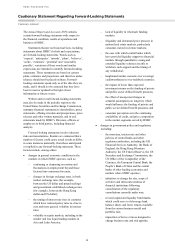 8
8 -
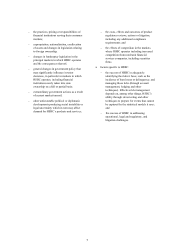 9
9 -
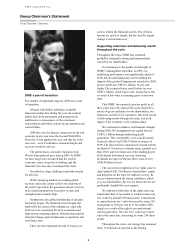 10
10 -
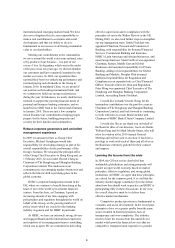 11
11 -
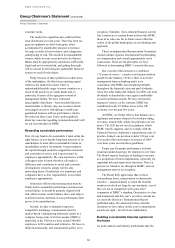 12
12 -
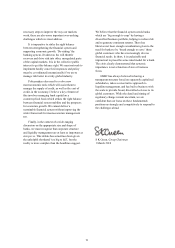 13
13 -
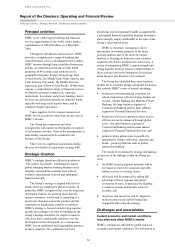 14
14 -
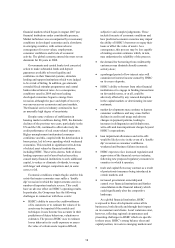 15
15 -
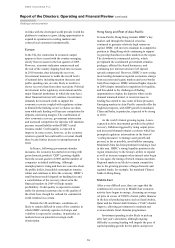 16
16 -
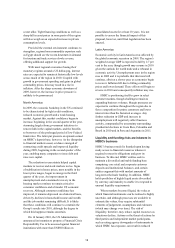 17
17 -
 18
18 -
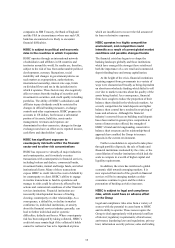 19
19 -
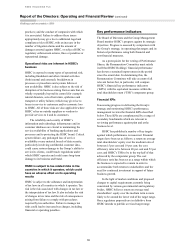 20
20 -
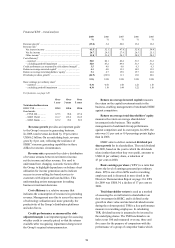 21
21 -
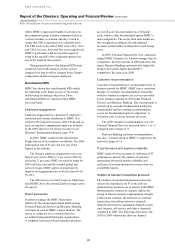 22
22 -
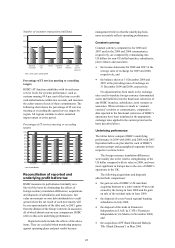 23
23 -
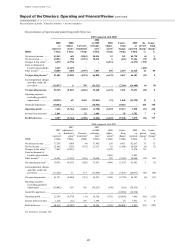 24
24 -
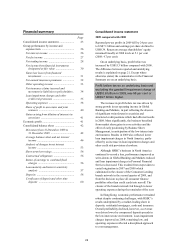 25
25 -
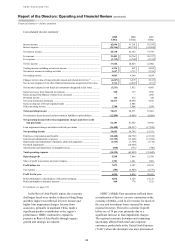 26
26 -
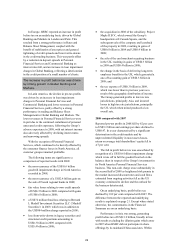 27
27 -
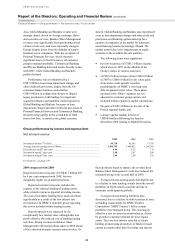 28
28 -
 29
29 -
 30
30 -
 31
31 -
 32
32 -
 33
33 -
 34
34 -
 35
35 -
 36
36 -
 37
37 -
 38
38 -
 39
39 -
 40
40 -
 41
41 -
 42
42 -
 43
43 -
 44
44 -
 45
45 -
 46
46 -
 47
47 -
 48
48 -
 49
49 -
 50
50 -
 51
51 -
 52
52 -
 53
53 -
 54
54 -
 55
55 -
 56
56 -
 57
57 -
 58
58 -
 59
59 -
 60
60 -
 61
61 -
 62
62 -
 63
63 -
 64
64 -
 65
65 -
 66
66 -
 67
67 -
 68
68 -
 69
69 -
 70
70 -
 71
71 -
 72
72 -
 73
73 -
 74
74 -
 75
75 -
 76
76 -
 77
77 -
 78
78 -
 79
79 -
 80
80 -
 81
81 -
 82
82 -
 83
83 -
 84
84 -
 85
85 -
 86
86 -
 87
87 -
 88
88 -
 89
89 -
 90
90 -
 91
91 -
 92
92 -
 93
93 -
 94
94 -
 95
95 -
 96
96 -
 97
97 -
 98
98 -
 99
99 -
 100
100 -
 101
101 -
 102
102 -
 103
103 -
 104
104 -
 105
105 -
 106
106 -
 107
107 -
 108
108 -
 109
109 -
 110
110 -
 111
111 -
 112
112 -
 113
113 -
 114
114 -
 115
115 -
 116
116 -
 117
117 -
 118
118 -
 119
119 -
 120
120 -
 121
121 -
 122
122 -
 123
123 -
 124
124 -
 125
125 -
 126
126 -
 127
127 -
 128
128 -
 129
129 -
 130
130 -
 131
131 -
 132
132 -
 133
133 -
 134
134 -
 135
135 -
 136
136 -
 137
137 -
 138
138 -
 139
139 -
 140
140 -
 141
141 -
 142
142 -
 143
143 -
 144
144 -
 145
145 -
 146
146 -
 147
147 -
 148
148 -
 149
149 -
 150
150 -
 151
151 -
 152
152 -
 153
153 -
 154
154 -
 155
155 -
 156
156 -
 157
157 -
 158
158 -
 159
159 -
 160
160 -
 161
161 -
 162
162 -
 163
163 -
 164
164 -
 165
165 -
 166
166 -
 167
167 -
 168
168 -
 169
169 -
 170
170 -
 171
171 -
 172
172 -
 173
173 -
 174
174 -
 175
175 -
 176
176 -
 177
177 -
 178
178 -
 179
179 -
 180
180 -
 181
181 -
 182
182 -
 183
183 -
 184
184 -
 185
185 -
 186
186 -
 187
187 -
 188
188 -
 189
189 -
 190
190 -
 191
191 -
 192
192 -
 193
193 -
 194
194 -
 195
195 -
 196
196 -
 197
197 -
 198
198 -
 199
199 -
 200
200 -
 201
201 -
 202
202 -
 203
203 -
 204
204 -
 205
205 -
 206
206 -
 207
207 -
 208
208 -
 209
209 -
 210
210 -
 211
211 -
 212
212 -
 213
213 -
 214
214 -
 215
215 -
 216
216 -
 217
217 -
 218
218 -
 219
219 -
 220
220 -
 221
221 -
 222
222 -
 223
223 -
 224
224 -
 225
225 -
 226
226 -
 227
227 -
 228
228 -
 229
229 -
 230
230 -
 231
231 -
 232
232 -
 233
233 -
 234
234 -
 235
235 -
 236
236 -
 237
237 -
 238
238 -
 239
239 -
 240
240 -
 241
241 -
 242
242 -
 243
243 -
 244
244 -
 245
245 -
 246
246 -
 247
247 -
 248
248 -
 249
249 -
 250
250 -
 251
251 -
 252
252 -
 253
253 -
 254
254 -
 255
255 -
 256
256 -
 257
257 -
 258
258 -
 259
259 -
 260
260 -
 261
261 -
 262
262 -
 263
263 -
 264
264 -
 265
265 -
 266
266 -
 267
267 -
 268
268 -
 269
269 -
 270
270 -
 271
271 -
 272
272 -
 273
273 -
 274
274 -
 275
275 -
 276
276 -
 277
277 -
 278
278 -
 279
279 -
 280
280 -
 281
281 -
 282
282 -
 283
283 -
 284
284 -
 285
285 -
 286
286 -
 287
287 -
 288
288 -
 289
289 -
 290
290 -
 291
291 -
 292
292 -
 293
293 -
 294
294 -
 295
295 -
 296
296 -
 297
297 -
 298
298 -
 299
299 -
 300
300 -
 301
301 -
 302
302 -
 303
303 -
 304
304 -
 305
305 -
 306
306 -
 307
307 -
 308
308 -
 309
309 -
 310
310 -
 311
311 -
 312
312 -
 313
313 -
 314
314 -
 315
315 -
 316
316 -
 317
317 -
 318
318 -
 319
319 -
 320
320 -
 321
321 -
 322
322 -
 323
323 -
 324
324 -
 325
325 -
 326
326 -
 327
327 -
 328
328 -
 329
329 -
 330
330 -
 331
331 -
 332
332 -
 333
333 -
 334
334 -
 335
335 -
 336
336 -
 337
337 -
 338
338 -
 339
339 -
 340
340 -
 341
341 -
 342
342 -
 343
343 -
 344
344 -
 345
345 -
 346
346 -
 347
347 -
 348
348 -
 349
349 -
 350
350 -
 351
351 -
 352
352 -
 353
353 -
 354
354 -
 355
355 -
 356
356 -
 357
357 -
 358
358 -
 359
359 -
 360
360 -
 361
361 -
 362
362 -
 363
363 -
 364
364 -
 365
365 -
 366
366 -
 367
367 -
 368
368 -
 369
369 -
 370
370 -
 371
371 -
 372
372 -
 373
373 -
 374
374 -
 375
375 -
 376
376 -
 377
377 -
 378
378 -
 379
379 -
 380
380 -
 381
381 -
 382
382 -
 383
383 -
 384
384 -
 385
385 -
 386
386 -
 387
387 -
 388
388 -
 389
389 -
 390
390 -
 391
391 -
 392
392 -
 393
393 -
 394
394 -
 395
395 -
 396
396 -
 397
397 -
 398
398 -
 399
399 -
 400
400 -
 401
401 -
 402
402 -
 403
403 -
 404
404 -
 405
405 -
 406
406 -
 407
407 -
 408
408 -
 409
409 -
 410
410 -
 411
411 -
 412
412 -
 413
413 -
 414
414 -
 415
415 -
 416
416 -
 417
417 -
 418
418 -
 419
419 -
 420
420 -
 421
421 -
 422
422 -
 423
423 -
 424
424 -
 425
425 -
 426
426 -
 427
427 -
 428
428 -
 429
429 -
 430
430 -
 431
431 -
 432
432 -
 433
433 -
 434
434 -
 435
435 -
 436
436 -
 437
437 -
 438
438 -
 439
439 -
 440
440 -
 441
441 -
 442
442 -
 443
443 -
 444
444 -
 445
445 -
 446
446 -
 447
447 -
 448
448 -
 449
449 -
 450
450 -
 451
451 -
 452
452 -
 453
453 -
 454
454 -
 455
455 -
 456
456 -
 457
457 -
 458
458 -
 459
459 -
 460
460 -
 461
461 -
 462
462 -
 463
463 -
 464
464 -
 465
465 -
 466
466 -
 467
467 -
 468
468 -
 469
469 -
 470
470 -
 471
471 -
 472
472 -
 473
473 -
 474
474 -
 475
475 -
 476
476 -
 477
477 -
 478
478 -
 479
479 -
 480
480 -
 481
481 -
 482
482 -
 483
483 -
 484
484 -
 485
485 -
 486
486 -
 487
487 -
 488
488 -
 489
489 -
 490
490 -
 491
491 -
 492
492 -
 493
493 -
 494
494 -
 495
495 -
 496
496 -
 497
497 -
 498
498 -
 499
499 -
 500
500 -
 501
501 -
 502
502 -
 503
503 -
 504
504
 |
 |

HSBC HOLDINGS PLC
Report of the Directors: Operating and Financial Review (continued)
Challenges and uncertainties
16
liquidity and valuations of those instruments. The
liquidity of those HSBC entities that utilise
long-term wholesale markets could be constrained
by an inability to access them due to a variety of
unforeseen market dislocations or interruptions.
Rating agencies which determine HSBC’s credit
ratings and thereby influence the Group’s cost of
funds, take into consideration the effectiveness of
HSBC’s liquidity risk management framework.
The market conditions that the financial services
industry experienced during the height of the crisis
were reflected in decreased liquidity, reduced
availability of long-term wholesale market funding,
pressure on capital and extreme price volatility
across a wide range of asset classes. Illiquidity
prevented the realisation of some asset positions and
constrained risk distribution in ongoing banking
activities. The market conditions also highlighted the
significant benefits of a diversified core deposit base,
leading to increased competition for such deposits
and the greater risk of deposit migration between
competitors.
HSBC’s Global Banking and Markets business
operates in many markets affected by illiquidity and
is subject to the threat of extreme price volatility,
either directly or indirectly, through exposures to
securities, loans, derivatives and other commitments.
At the height of the financial crisis, HSBC made
substantial write-downs and recognised impairments
on illiquid legacy credit and structured credit
positions. Although during 2009 there was some
moderation in market conditions, it is difficult to
predict if this trend will continue and, if conditions
worsen, which of HSBC’s markets, products and
other businesses will be affected. Any repeat of these
factors could have an adverse effect on the Group’s
results.
Reform of the regulatory environment
presents risks to HSBC
There are potential strategic and structural risks to
the organisation, nature and scope of the Group’s
business activities and opportunities posed by many
of the proposals for regulatory reform being debated
both internationally and domestically in response to
the recent financial crisis. A consensus has emerged
among the G-20 nations that institutions that would
pose a systemic risk if they were to fail should be
subject to enhanced regulation in markets in which
they have a substantial presence. HSBC is likely to
be considered a systemically significant institution in
its key markets. The Basel Committee on Banking
Supervision (‘The Committee’) has issued a
comprehensive reform package to address the
lessons of the crisis which includes proposals on
strengthening global capital and liquidity regulations
and the resolution of systemically significant cross-
border banks. The Committee’s paper entitled
‘Strengthening the Resilience of the Banking Sector’
proposes changes to both the composition of capital
and the risk coverage of the capital framework, as
well as the introduction of a leverage ratio and
measures to promote the build up of capital buffers.
The stated intention of these proposals is to promote
a more resilient banking sector, to improve the
banking sector’s ability to absorb shocks, to
improve risk management and to strengthen bank
transparency and disclosure. The proposals
on liquidity aim to elevate the resilience of
internationally active banks to liquidity stresses, as
well as increasing international harmonisation of
liquidity risk supervision. A study of the impact of
all these proposals on individual banks, and the
financial services industry as a whole, is taking
place in the first half of 2010 in parallel with a
consultation process. The Committee is then seeking
to agree proposals by the end of 2010 for
implementation by the end of 2012.
At the same time, the European Commission,
the UK Tripartite Authorities (HM Treasury, the
Bank of England and the Financial Services
Authority (‘FSA’)), the US Government and others
have made a number of proposals for adjustments in
their regulatory regimes which could affect entities
in the HSBC Group. HSBC is engaged actively in
discussions with its regulators, both directly and
through industry bodies, on the appropriate regime to
be applied to various activities and entities, taking
into account the interaction of global and local
regulations. The precise nature, extent, form and
timing of any regulatory changes, as well as the
degree to which there will be effective consultation
among the various jurisdictions involved, are highly
uncertain and thus it is not possible to determine or
estimate the likely actual impact on the Group’s
business and activities. Major areas where reform is
being actively discussed, all of which could affect
HSBC’s business and activities, are possible capital
surcharges for systemically important banks, greater
emphasis on standalone national subsidiaries,
reduced interconnectedness within the system,
changes to capital regulations affecting both capital
and capital requirements, changes in compensation
practices, restrictions on certain types of financial
products, and greater separation of retail and
wholesale activities.
HSBC Bank, like all authorised institutions in
the UK, is subject to a ‘Special Resolutions Regime’
under the Banking Act 2009 which gives wide
powers in respect of UK banks and their parent
